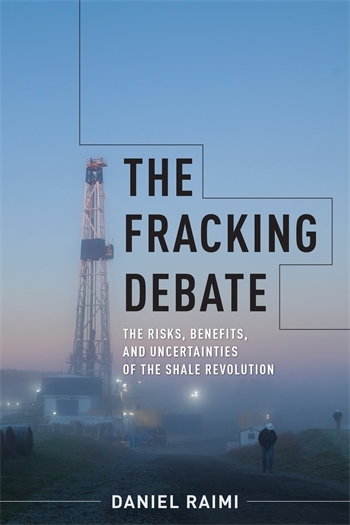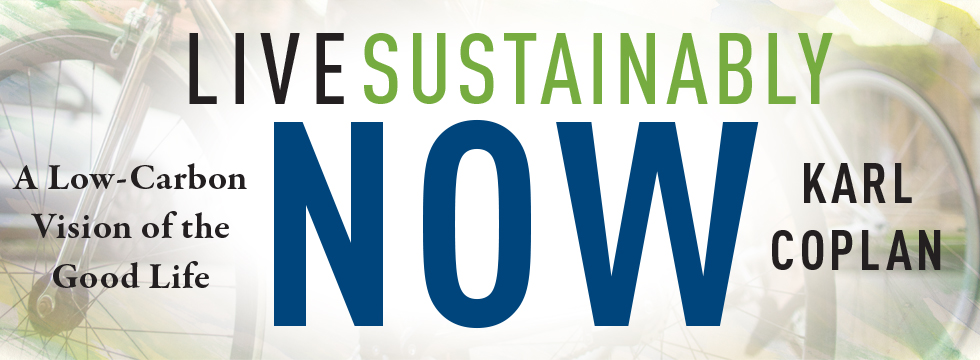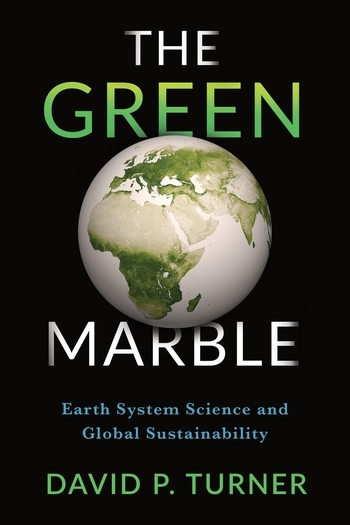Fracking: Dirty Word or Harmless Technique?

“There are few words in Energy that inspire more polarized and extreme response than this one; fracking.”
–Jason Bordoff, Columbia Energy Exchange
This month, in honor of Earth Day, we’re featuring titles that are related to climate change, sustainability, and environmental studies. Today, we’re happy to provide you with an excerpt from an interview with Daniel Reimi that originally appeared on the Columbia Energy Exchange. The Fracking Debate: The Risks, Benefits, and Uncertainties of the Shale Revolution is part of the Center on Global Energy Policy Series. Listen to the entire interview on the Columbia Energy Exchange. To listen to more podcasts and interviews visit The Fracking Debate.com.
Remember to enter our book giveaway for a chance to win a copy of the book!
• • • • • •
There are few words in Energy that inspire more polarized and extreme response than this one; fracking. For some it’s a dirty word, fracking is a practice that despoils the air and water or extends our hydrocarbon dependence. One prominent activist called fracking a form of “climate denial”, for others it’s a harmless technique and one that has been one of the strongest buttresses to the US economy, a source of geopolitical power, the driver of coal’s decline and delivering numerous other benefits. So, which is it?
That’s the subject of a new book from the Columbia University Press through the Center on Global Energy Policy books series; it’s called The Fracking Debate by Daniel Raimi. And it explains how fracking works; it explains what we know about it, what we don’t, it explains the nuances of fracking and how they shape government policy. It aims to be a dispassionate look at the evidence to date, written in as objective and balanced a way as I think you will find today on this controversial topic, and it’s also written in a very easily readable and very accessible way for a topic that can get somewhat complicated and technical.
Daniel I think has really done a great job with this book, it’s a valuable contribution to our understanding of whether you like it or not, one of the most consequential innovations and developments in the US energy sector in the last several decades. Daniel Raimi is a Senior Research Associate of resources for the future, he is a Lecture at the Ford School for Public Policy at University of Michigan and for listeners eager to read The Fracking Debate, the book is available now for purchase through Amazon, Columbia University Press and many other retailers.
And additionally we invite you to join us in New York City either live in person or through our webcast for the official launch of the book on January 17th, this will include a panel conversation between Daniel and many other experts. I will moderate the event, I hope you will join us; you can visit the Center on Global Energy Policy’s website for more information. Now onto todays show. Daniel Raimi, welcome to the Columbia Energy Exchange.
Daniel Raimi: Thanks, Jason. It’s great to be with you as a regular listener to the Energy Exchange; it’s an honor to be a guest.
JB: Well, it’s great to have you and it’s great to have this book in particular The Fracking Debate as part of the Center on Global Energy Policy book series. I think it’s a good example of what we hope our work does generally and this book does, I think it’s fair to say there are few issues in the energy world now that attract more emotional reaction than the word fracking.
But, it’s also one that sometimes people may not understand all the facts about and they’ll hear from some people that it’s saving the US economy and making us energy independent from other people that it’s destroying the environment and the planet. And, I think many people I often encounter sort of say is there something I can turn to that helps me understand what’s really going on here, and I take it that was the motivation for writing the book?
DR: Yeah. That’s right. So, I talk about this little bit in the introduction to the book, whenever I meet people for the first time or when they are learning about the work that I do and I say the word fracking, suddenly people’s ears prick up and their opinions often get quite strong. But, there are a lot of kind of fundamental issues that people simply don’t have great access to information on, it’s easy to get information from partisans on either side of the debate who make arguments like you say Jason that either this is the best thing that’s ever happened or it’s the worst thing that’s ever happened, the reality is it’s a mix of benefits and challenges. And, there are also still some uncertainties where there are issues that we don’t have all the facts yet and where we need additional research to kind of clarify the policy debate.
JB: So, let’s walk through some of those issues, but first just sort of the back — what fracking is and the background of it, I think for a lot of people it’s only in the last few years that they have heard about it, but in fact its history goes quite a ways back further than that, so tell us that history and then why are we suddenly talking about it now.
DR: Sure. So, fracking is short for the term hydraulic fracturing which is a particular way of stimulating on oil or gas reservoir it involves pumping into predrilled well, typically millions of gallons of water mixed with quite a large amount of sand as well as some chemicals. Those chemicals are controversial and there is a discussion to have about that. But, if you look back to the beginning of the oil and gas industry, all the way back to the 1850s in Northern Pennsylvania, where some of the first commercial wells were drilled, they were actually individuals selling to the well operators explosives that they could lower down into the bottom of their well and detonate, typically nitro glycerin based explosives.
So, the idea of stimulating rock reservoirs deep underground to increase the production of oil and gas is nothing new. However, we’ve seen over the last 10 or 15 years, a real revolution in oil and gas technology in the United States and that’s because of the application of this particular type of well stimulation, hydraulic fracturing or fracking coupled with other technological advances like big advances in directional and horizontal drilling as well as better seismic imaging techniques, financial innovation in the oil and gas sector and a variety of other more incremental improvements that have allowed companies to access rock formations called shale or other type formations that they previously had not been able to access in an economical way. And so, the application of fracking in these other technologies to shale and other type rocks is the driver of enormous increases in United States natural gas as well as oil production.
JB: And again, as you – you hear many people on one side of this issue talk about horror stories related to fracking, on the other hand you often hear the industry say there has never been a known instance of water contamination from fracking for example and you point out that when people say the word fracking, they are talking about different things, so say more about that.
DR: Yeah. So, it can be challenging to spend too much time trying to define a word and what a word means, it can been a little boring if you go too deep into it, but I spent some time in the book talking about how advocates who are typically opposed to shale drilling will use the word fracking to encompass the entire oil and gas industry, so people may refer to fracking wells or fracking companies or fracking pipelines.
When fracking itself is a discreet activity that takes place in the context of oil and gas development more broadly, that’s important because for policymakers, if you are trying to develop good regulations about one particular aspect of the industry, you need to understand the context of each individual technology and fracking is just one of those technologies. When you look to the other side of the debate; pro industry advocates, they are typically more careful with their use of the word fracking, but not in all cases.
So, Jason you point out correctly that many people will say there have never been confirmed cases where hydraulic fracturing has contaminated water sources. That’s a debatable statement, because there are a couple cases, really just one or two out there where there may have been chemicals or other problems directly related to the hydraulic fracturing process. But, more generally, cases of pollution related to the oil and gas development are caused by other errors that can happen when you drill in cement or case on oil gas well. So, well fracking itself is typically not a major reason for pollution, other activities related to oil and gas development can cause real problems. And so, that’s what industry advocates mean when they say hydraulic fracturing has not been a confirmed case, there hasn’t been a confirmed case where hydraulic fracturing has contaminated ground water.
The last thing I will say about this is where it gets tricky is oil and gas industry advocates often, when they are talking about the benefits of the shale revolution and there have been substantial benefits, then they start to use the word fracking. So, when they talk about the benefits of the shale revolution, they might say fracking has led to this many jobs or fracking has led to this economic boost in a particular region, but then when you start talking about the risks, then the definition of fracking suddenly gets narrower, and that’s a real cause for confusion for people trying to understand this issue and something that I hope this book can help clarify.
JB: Yeah. That’s really helpful. So, it sounds like you are saying when you’re talking about the benefits, you are talking about overall the increase in oil and gas production that comes from the application of this technology, but if you have a narrow take on what the risks are and you are only referring to that particular piece of production activity that is the fracturing of the well, that may be technically accurate, but when people are trying to understand and it sounds like you are saying yes, but there are other risks, truck filled with frac fluid, may have an accident and spill or there may be emissions from some of the industrial activity on the ground or things like that.
And the people who raise those concerns are talking about that whole pool of activity, is that right?
DR: That’s right. And, one of the reason the book is called The Fracking Debate is because the debate is often – it takes place around this word fracking, but the subtitle of the book is the risk benefits and uncertainties of the shale revolution and the shale revolution is really the broader encompassing. And so I think it’s really important to distinguish between the discrete activity of hydraulic fracturing and the broader shale revolution and to just to kind of know what we’re talking about when we’re having this discussion.
Listen to the entire interview on the Columbia Energy Exchange.






